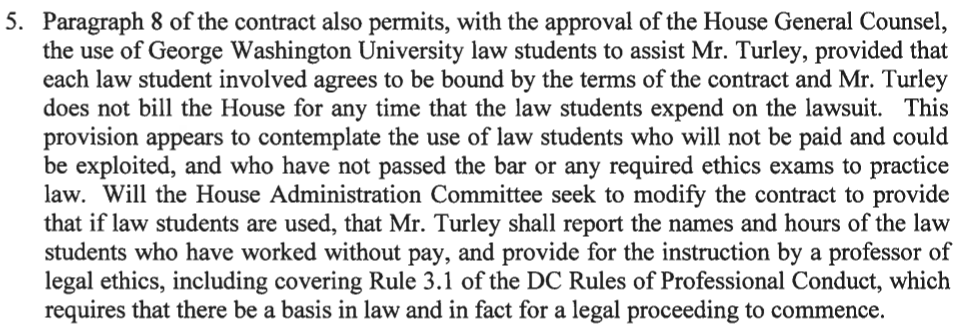The Office of Legal Counsel’s Memo premises the legality of deferred action for the parents of U.S. Citizens in light of the fact that the children, once 21, will be able to petition for a visa for their parents. However, the parents of DACA beneficiaries cannot received deferred prosecution because they have no path to citizenship, and will not be able to petition for a visa. If this is in fact true, how can DACA be legal?
Two recent posts in the Balkinzation symposium on immigration make this point well. First, David A. Martin states the issue very well:
The opinion actually raises significant questions about the Obama Administration’s own signature exercise of expansive prosecutorial discretion, the 2012 DACA program that shields childhood arrivals from deportation. And it is disingenuous about key elements of its reasoning and its analysis of the new programs in operation. ..
By this analysis, DACA itself is drawn into question. (Ahilan Arulanantham flags this issue in his post, but from a different angle.) DACA cannot at present be seen as an interim measure; Congress so far has refused to pass the DREAM Act. And it’s hard to see how DACA aligns with earlier policies that Congress has implicitly blessed. The opinion cryptically acknowledges this difficulty in its footnote 8 (p. 18), which says that OLC gave oral advice on DACA before it was launched, and then mumbles about DACA resting on “humanitarian concerns . . . consistent with the types of concerns that have customarily guided . . . enforcement discretion.” What kind of legal guidance is this? Humanitarian concerns are certainly involved with the proposal to let DACA parents stay – indeed with almost any proposal for expansive use of deferred action. (In myview, DACA was a valid exercise of prosecutorial discretion, largely because it covers only a small percentage of removable aliens and because it shields only those not culpable for the initial immigration law violation.)
It’s almost as though OLC felt it had to draw a line in the legal sand somewhere or else there would be no end to the pressures on the executive branch to add new groups to the deferred action list. In any event, the OLC opinion will prove useful to the President in this respect. He has never been good about saying No to the immigrant advocacy community and then standing by that answer. (He should have said firmly at the time of DACA that DACA is as far as he is going to go using executive action, and insisted then that any further relief will have to be won in Congress. By failing to do so, he kept much of the advocates’ advocacy and anger directed at himself rather than Congress. The OLC opinion may give him what he needs to deflect future demands.)
Even more troublesome is the fact that I noted before–the statute is drawn in a way to make relief virtually automatic. Ther eis almost no room for discretion, so any pretense of a case-by-case analysis is mere sophistry.
But perhaps most inaccurate is OLC’s assessment of factor 4. A class-based program, the opinion says, has to leave room for individualized denial “even if the applicant fulfills all the program criteria.” It is “the guarantee of individualized, case-by-case review” (p. 23) that keeps a class-based program from amounting to a rewrite of the laws. In actual operation, however, the new deferred action programs will function so that anyone who meets the class-based criteria will be virtually guaranteed a grant.
The DHS memos setting up the program dutifully recite the words “case-by-case,” but as OLC acknowledges, they do not specify what would count as a factor that “would make the grant of deferred action inappropriate” (p. 29). OLC sees this vagueness as giving the deciding officer substantial discretion. But in the real world, vagueness means that officers will be deeply reluctant to deny deferred action to someone who meets the class-based criteria (which already include disqualification for most criminal offenses). Throughout the Obama administration, advocates have been vigilant in raising hell whenever an individual officer’s charging decision seems to depart from internal guidance, even in the application of the normal ad hoc prosecutorial discretion priorities. If officers are going to deny someone who meets the class-based requirements, they need to know what enforcement-linked factors will be accepted by their supervisors as a valid basis for doing so. The DHS memos provide no such fortification.
Zachary Price alludes to the same issue:
Contrary to what some argued before the OLC opinion, categorical deferred action cannot be justified as just another form of conventional agency priority-setting. A conventional agency priority is just internal agency guidance and avoids assuring non-enforcement to any specific party. Deferred action, although formally revocable, aims in practice to provide security from removal to its beneficiaries (and to enable certain other immigration benefits).
(It is also worth noting that the opinion’s careful effort to root deferred action for parents of citizens and LPRs in specific statutory policies concededly does not apply to DACA itself. DACA instead depends on an analogy to past humanitarian exercises of group-based deferred action, even though, as the opinion puts it, those past actions typically involved more “particularized and acute” concerns.)
